Leeds nostalgia: War Diary Week 4: The Good German and finally a taste of freedom
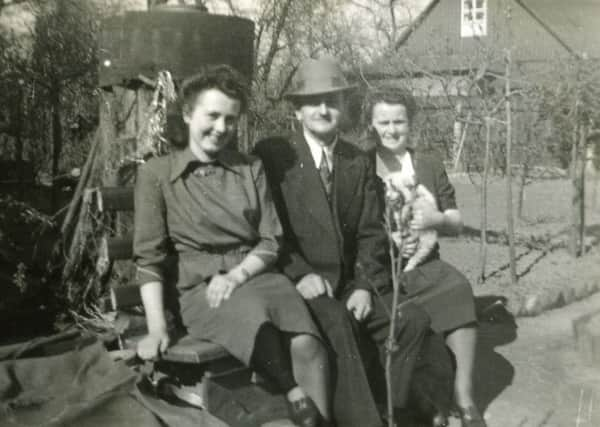

“As the days moved into April the snow began to melt and in a very short time the camp was flooded, so once again we had to transfer to another camp. This time we went to Wolstyn, south-west of Posen near the Polish/German border.
“This camp was uncomfortable. Our accommodation was rough, with single metal beds, three high. If you fell off the top to the concrete floor you were sure to get a broken limb.
Advertisement
Hide AdAdvertisement
Hide Ad“On one occasion, a German film crew appeared. They began to throw handfuls of sweets into the air, expecting a mad scramble but everyone saw it was a propaganda stunt.
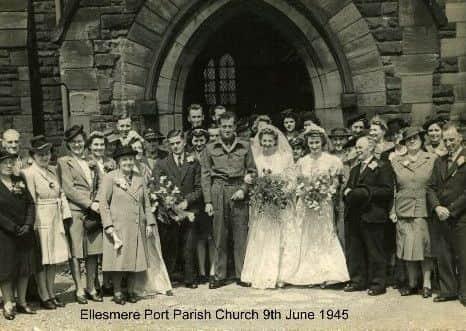

“After two weeks we left Wolstyn. In the middle of June 1941 we were sent to the large British POW camp Stalag VIIIB, known as Lamsdorf. It was a series of wooden huts arranged into compounds, surrounded with barbed wire. It was in this compound we saw Douglas Bader, the legless pilot, and heard all the stories about him.
“We left Lamsdorf camp on June 25, 1941 in cattle trucks for a 120km journey to Gleiwitz, Southern Poland. We woke next morning to a real rumpus. Everybody was itching and scratching and in no time at all we had the blankets outside into the heat of the sun and we saw the blankets were thick with lice. Thankfully we only stayed in this place five weeks but the thing I remember most was I received my first letter from Frances, the first contact we had made for 14 months.
“Back at Stalab V111B... where we worked in the mines. It was the winter of 1941 and the war was at a very serious stage.
Advertisement
Hide AdAdvertisement
Hide Ad“The Germans were rushing towards Moscow, the British Army was in retreat in North Africa, the Ark Royal a British Aircraft Carrier had been sunk. German U-Boats were creating havoc on the high seas, the cities of Britain were being bombed day and night and the Japanese were sweeping over the Pacific Islands. Some German miners bragged about their successes saying the war would be over in months. Some poked fun at us about the Army song ‘Hanging our washing on the Siegfried Line’.... But when the German Armies were trapped in the Russian winter and the USA entered the war and the RAF made a thousand bomber raids on Cologne, we had just two words, “Deutschland Kaput”, which brought a stony silence.
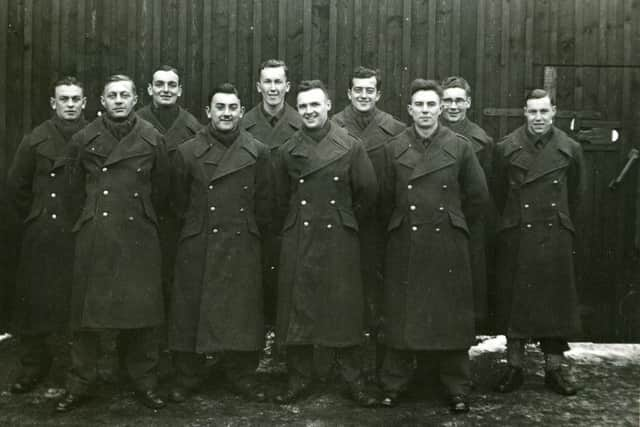

“One of the miners we made a special friendship with was Alfred Bittner, a man of about 50. He had a wife and young daughter and at one time had been mayor of the village, a very intelligent and peace loving man, who lived for his smallholding and his family.
“In the quiet parts of the mine he would whisper to us his hatred of the Nazis and told us how by threats and force they had taken over the village. When I worked with him he would often find a flat piece of timber and tell me sleep.
“Just before Christmas, Walter, Norman, Clem and I made up a small parcel for Alfred Bittner as a Christmas gift. From our Red Cross parcels we gave him a packet of real coffee, soap and some chocolate for his daughter. He told us when he opened it, the things he saw he had not seen for years. On Christmas Day they drank real coffee, he was overcome, almost to tears. A few days later he brought each one of us a flask of wine.
Advertisement
Hide AdAdvertisement
Hide Ad“After the war Alfred and his family were forced to leave their home. We exchanged letters but it became complicated because he lived in East Germany. My last contact came in 1947, it was a funeral card to tell me he had died in a fire at a coal mine.
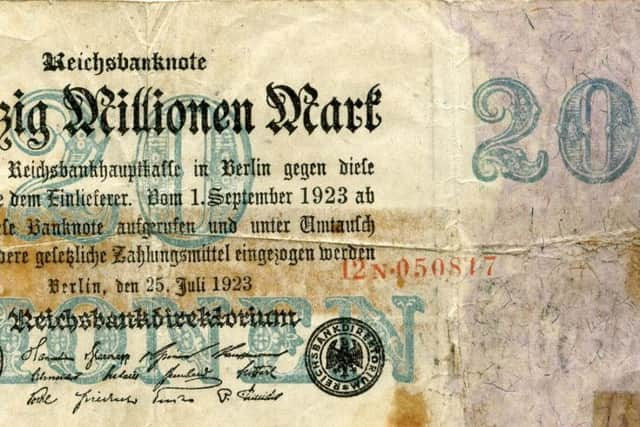

“Christmas 1941: the German officer in charge gave full support for any project we came up with. We had a talent contest with singers, dancers, comedians. He even got us a piano and we staged Aladdin.
“August 1942: we left the working compound at Stalag V111B, little did we know, for the last time. We were taken to Grulich, Sudetanland, a field just off a rough road in some lovely countryside. Everything was new, the beds, the tables, benches and perhaps most important a stove and hot-plate, also a small outside barbed wire compound. This camp at Grulich, now called Králícky, is situated in Eastern Bohemia, Czechoslovakia.
“1943 saw new hopes this would be the final year. I received 120 cigarettes from the Yorkshire Evening News. Into 1944, letters from home were most important and exciting - how eagerly we looked for [them]. On June 6, 1944, we set off for work, taking long concrete joists to the top of a building… that night the site foreman told us Allied Forces had landed in France.
Advertisement
Hide AdAdvertisement
Hide Ad“At the end of January 1945 we estimated Russian forces were 60 miles away. An entry in my diary for March 15th, 1945 says we had four air raid warnings and the snow beginning to thaw. The news on our hidden crystal set told us Germany was crumbling.
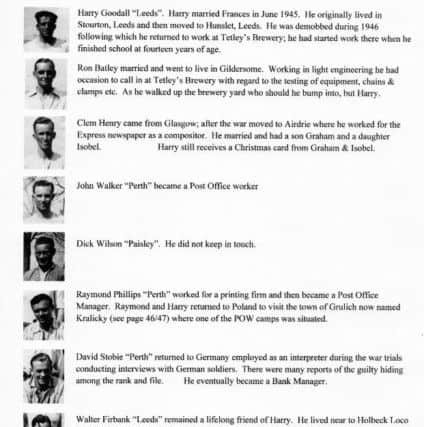

“May 7, 1945: we assembled outside. The rumour was we were on our way. We left for the last time, down the rough road, past the row of houses on the left, past the football field and open-air bath on the right, into the narrow street which led us into the open square of Grulich, now called Králíky. We walked 12km that day, spending the night in a barn on a farm.
“May 1945 was our first day of freedom, what a great feeling....”
Harry eventually returned to the UK and married fiance Frances (nee Williamson), who passed away several years ago. Together they had two children, Margaret and Ann. Harry was grandfather to three and great grandfather to four. He worked at Tetley’s Brewery before retiring.
His war diary was compiled by friend Jim Barry and was serialised and edited for the YEP with the kind consent of his family. The full account remains unpublished.